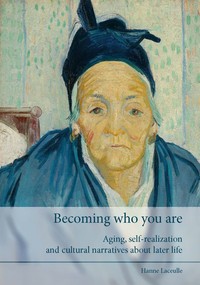Aging well: Becoming who you are
21 November 2016
 Moreover, these dominant cultural narratives cannot provide us with the necessary resources to integrate confrontations with existential vulnerability in our lives in a meaningful way.
Moreover, these dominant cultural narratives cannot provide us with the necessary resources to integrate confrontations with existential vulnerability in our lives in a meaningful way. Drawing on the rich philosophical tradition of thought about self-realization, critically exploring the value of constitutive ethical concepts like autonomy, authenticity and virtue for the context of aging well, this book suggests contours for alternative cultural counter narratives about later life. Through these counter narratives, older individuals are supported in the search for a meaningful age identity, whereas society is evoked to recognize its older members as moral agents of their own lives, and stimulated to include them as valued participants.
PhD defense Hanne Laceulle
6 December 2016, 10.30 AM
Senaatszaal Academiegebouw, Domplein 29, Utrecht
In her dissertation, Becoming who you are. Aging, self-realization and cultural narratives about life, Hanne Laceulle addresses how dominant cultural narratives about aging and later life tend to identify aging with inevitable decline, whereas aging well is equated with staying young for as long as possible. Problematically, however, both decline- and age-defying cultural narratives about aging fall short of acknowledging the positive potentials of later life. Moreover, these dominant cultural narratives cannot provide us with the necessary resources to integrate confrontations with existential vulnerability in our lives in a meaningful way. Drawing on the rich philosophical tradition of thought about self-realization, critically exploring the value of constitutive ethical concepts like autonomy, authenticity and virtue for the context of aging well, this book suggests contours for alternative cultural counter narratives about later life. Through these counter narratives, older individuals are supported in the search for a meaningful age identity, whereas society is evoked to recognize its older members as moral agents of their own lives, and stimulated to include them as valued participants.
